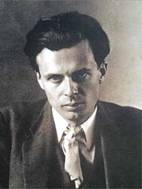|
Século XX |
|
Horace
W. Newte The Master Beast |
E.
M. Foster The
Machine Stops |
|
Ievgueni
Ivanovitch Zamiatine Nous
Autres |
|
« Je descendis et
assistai à un délire général. Les soleils de cristal taillé éclairaient
un quai bourré de têtes devant un train vide et engourdi. Je ne la
voyais pas, mais je la reconnus à sa voix souple et flexible comme une
cravache. Ses sourcils relevés vers les tempes devaient être quelque
part… |
|
Thea
von Harbou Metropolis |
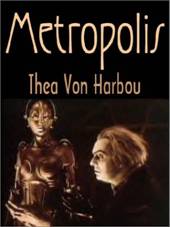 |
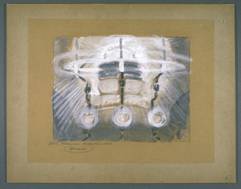 |
Erich Kettelhut
Metropolis |
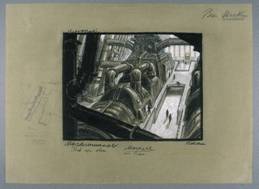 |
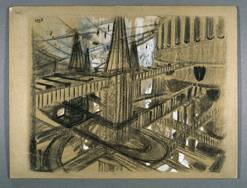 |
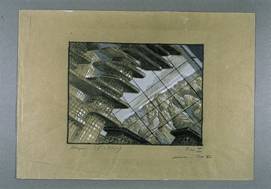 |
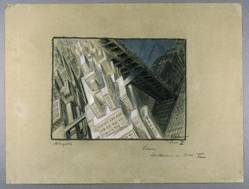 |
|
Hugh
Ferriss The
Metropolis of Tomorrow
|
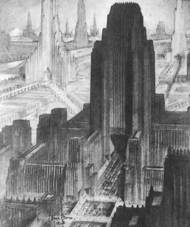 |
|
“Going down into the streets of a modern city must seem - to the newcomer, at least - a little like Dante's descent into Hades. Certainly so unacclimated a visitor would find, in the dense atmosphere, in the kaleidoscopic sights, the confused noise and the complex physical contacts, something very reminiscent of the lower realms.” |
|
John
Haldane The
Last Judgment |
James
Hilton Lost
Horizon |
|
Aldous
Huxley Brave
New World |
Profecia
científica? Ficção satírica? A utopia de A. Huxley é uma das mais poderosas
acusações da sociedade industrial e dos perigos do progresso científico, do
condicionamento individual, da planificação total que reduz o indivíduo a um
elemento servil, vazio, sem autonomia e sem consciência
|
|
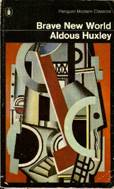 |
|
"And this," said the Director opening the door, "is the
Fertilizing Room." |
|
Sinclair
Lewis It
can’t happen here |
 |
|
George
Orwell Animal
Farm: A Fairy Tale |
|
|
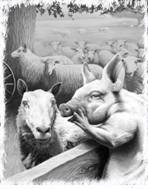 |
|
“Now,
comrades, what is the nature of this life of ours? Let us face it: our
lives are miserable, laborious, and short. We are born, we are given
just so much food as will keep the breath in our bodies, and those of us
who are capable of it are forced to work to the last atom of our
strength; and the very instant that our usefulness has come to an end we
are slaughtered with hideous cruelty. No animal in |
|
George
Orwell 1984 |
Utopia
nascida da angustia perante o mundo do pós-guerra, dividido entre a hegemonia
nazi e a ditadura estalinista. Mantidos pelo medo, pelo estado policial, pela
propaganda, pelo panóptico universal e dirigidos pelo ódio, os homens vivem
numa permanente situação de sofrimento e privação.
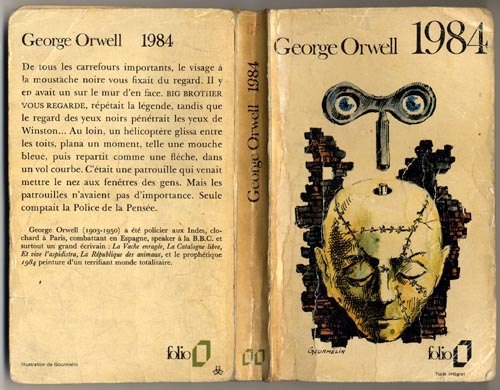 |
|
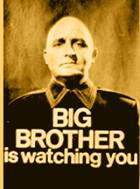 |
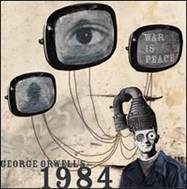 |
|
“With that first blow on the elbow the nightmare had started. Later he was to realize that all that then happened was merely a preliminary, a routine interrogation to which nearly all prisoners were subjected. There was a long range of crimes - espionage, sabotage, and the like - to which everyone had to confess as a matter of course. The confession was a formality, though the torture was real. How many times he had been beaten, how long the beatings had continued, he could not remember. Always there were five or six men in black uniforms at him simultaneously. Sometimes it was fists, sometimes it was truncheons, sometimes it was steel rods, sometimes it was boots. There were times when he rolled about the floor, as shameless as an animal, writhing his body this way and that in an endless, hopeless effort to dodge the kicks, and simply inviting more and yet more kicks, in his ribs, in his belly, on his elbows, on his shins, in his groin, in his testicles, on the bone at the base of his spine. There were times when it went on and on until the cruel, wicked, unforgivable thing seemed to him not that the guards continued to beat him but that he could not force hirnself into losing consciousness. There were times when his nerve so forsook him that he began shouting for mercy even before the beating began, when the mere sight of a fist drawn back for a blow was enough to make him pour forth a confession of real and imaginary crimes. There were other times when he started out with the resolve of confessing nothing, when every word had to be forced out of him between gasps of pain, and there were times when he feebly tried to compromise, when he said to himself : " I will confess, but not yet. I must hold out till the pain becomes unbearable. Three more kicks, two more kicks, and then I will tell them what they want." |
|
|
Jack
Williamson The
Humanoids |
George
Stewart Earth
Abides |
|
Ray
Bradbury The
Martian Chronicles |
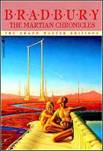 |
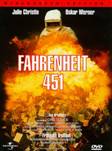 |
Ray
Bradbury Fahrenheit
451 |
|
Robert
Merle Malevil |
 |
|
Georges
Perec W
ou le Souvenir d’Enfance |
|
«Celui qui commence à se familiariser avec la vie W, un novice par exemple qui, venant des Maisons de Jeunes, arrive vers quatorze ans dans un des quatre villages, comprendra assez vite que l’une des caractéristiques, et peut-être la principale, du monde qui est désormais le sien est que la rigueur des institutions n’y a d’égale que l’ampleur des transgressions dont elles sont l’objet. Cette découverte, qui constituera pour le néophyte un des éléments déterminants de sa sauvegarde personnelle, se vérifiera constamment, à tous les niveaux, à tous les instants. La Loi est implacable, mais la Loi est imprévisible. Nul n’est censé l’ignorer, mais nul ne peut la connaître. Entre ceux qui la subissent et ceux qui l’édictent se dresse une barrière infranchissable. L’Athlète doit savoir que rien n’est sûr ; il doit s’attendre à tout, au meilleur et au pire ; les décisions qui le concernent, qu’elles soient futiles ou vitales, sont prises en dehors de lui ; il n’a aucun contrôle sur elles. Il peut croire que, sportif, sa fonction est de gagner, car c’est la Victoire que l’on fête et c’est la défaite que l’on punit ; mais il peut arriver dernier et être proclamé Vainqueur : ce jour-là, à l’occasion de cette course-là, quelqu’un, quelque part, aura décidé que l’on courrait à qui perd gagne. ». |
 |
Pamela
Sargent Cloned
Lives |
|
Kim
Stanley Robinson Pacific
Edge |
 |
|
Lebbeus
Woods The
|
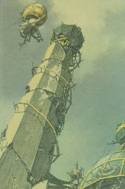 |
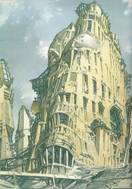 |
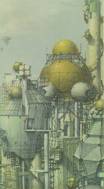 |
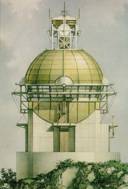 |
|
Kim
Stanley Robinson Red
Mars |
 |
 |
Kim
Stanley Robinson Green
Mars |
|
Russell
Hoban Fremder |
 |
 |
Howard
V. Hendrix Lightpaths |
